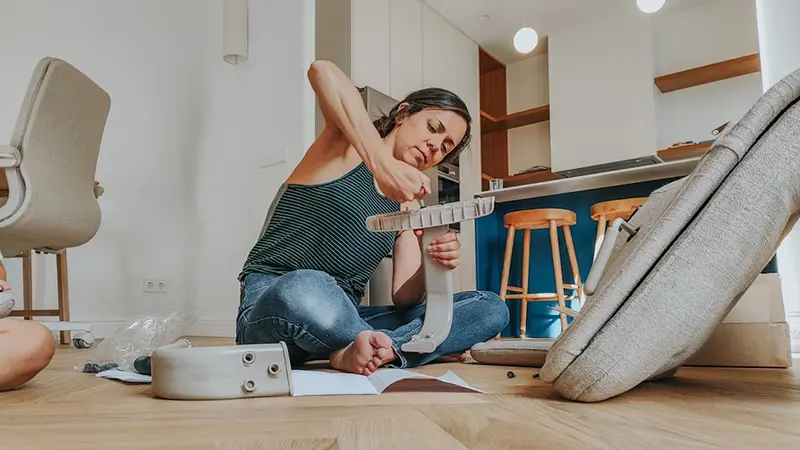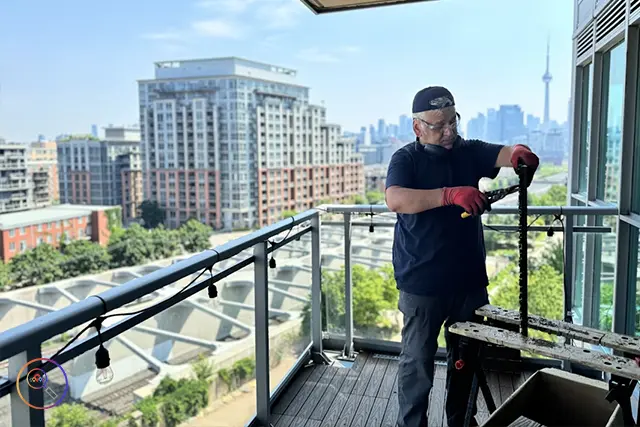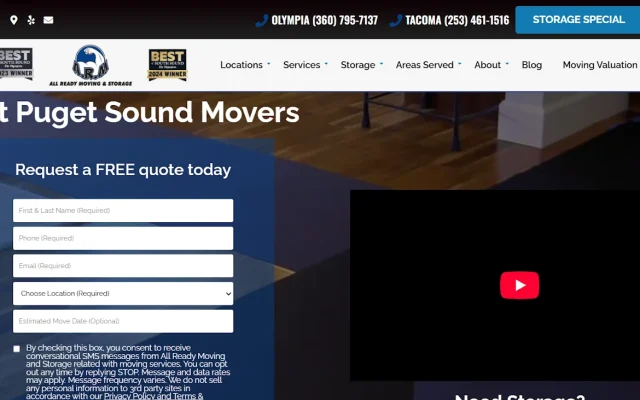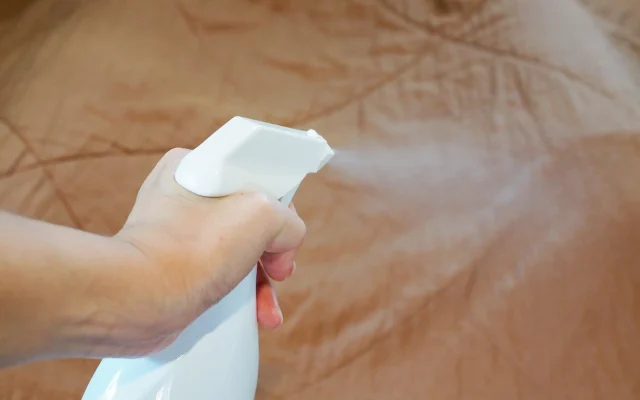Apartment repairs have a way of showing up when you least expect them. Whether it is a leaking faucet just before guests arrive or a broken heater on a cold morning, timing rarely feels convenient. These situations can be frustrating, especially if you rent and have limited control over the property.
With a calm approach and a few practical habits, you can prevent minor issues from spiraling into full-blown emergencies. Being prepared helps you feel more in control, even when surprises happen. Understanding how to act quickly, communicate clearly, and manage apartment repairs efficiently can reduce both financial and emotional strain.
You do not need to be a repair expert to stay ahead. With the right mindset and a few well-placed tools or contacts, last-minute apartment repairs do not have to throw off your schedule or your peace of mind.
Always Prepare Ahead
Staying ready before anything breaks can change how you handle emergencies. Small steps that you build up from the moment you find a new apartment and move in will save time and stress later.
Keep a List of Reliable Contacts
Having a go-to list of trusted apartment maintenance professionals puts you in a stronger position when something breaks. Ask your landlord whom they prefer you call for certain issues. Some tenants also keep numbers for independent professionals in case the property manager takes too long to respond. This is not about cutting corners but about having options in time-sensitive moments.
Try to include a plumber, electrician, general handyman, and appliance technician. Store those numbers on your phone and also write them down somewhere visible, like on the inside of a kitchen cabinet.
Stock Essential Repair Supplies
You do not need a full toolbox, but a few basics can help you respond immediately. A plunger, adjustable wrench, flashlight, and some strong tape often make a big difference. Add extra batteries, screwdrivers, and a few spare lightbulbs. For small water leaks, plumber’s tape or putty can reduce damage while you wait for help.
You will feel more confident knowing you have what you need for short-term fixes. It also prevents unnecessary panic if a repair person cannot arrive right away.
Communicate Effectively With Your Landlord
Clear and prompt communication often determines how fast apartment repairs gets resolved. Knowing what to say and when can make all the difference. Waiting too long can make a small issue worse. As soon as something breaks, let your landlord or property manager know. Include clear details, a photo if needed, and ask for a timeline.
You are more likely to get a quick response if your message is focused and polite. Do not assume they already know. Even if a problem seems obvious, it might be the first time they are hearing about it. Keep a record of your message and any replies, just in case the repair becomes a dispute.
If you do not get a response within a reasonable time, follow up respectfully. Frame your message as a reminder, not a complaint. Express the urgency without adding emotion. Letting them know how the problem affects your daily life can help them prioritize it.
Know When To Handle It Yourself
Some last-minute issues can be solved without waiting for outside help. That said, never try to fix something you are not comfortable with. A clogged drain, loose cabinet hinge, or running toilet often has a simple solution.
Online tutorials can help, but make sure you’re working within your lease terms. Some landlords require approval before making any changes, even small ones. If it involves electrical work, gas lines, or anything that may damage the apartment, step back and wait for a professional. No convenience is worth a potential safety risk. Stopping a leak with a towel or taping a cracked window before a storm arrives are examples of safe, useful, temporary fixes. These are not long-term solutions, but they reduce immediate impact while you wait for apartment repairs.

Plan Financially for Emergencies
Even if you rent, some apartment repairs may cost you money. Thinking ahead can help soften the impact of surprise expenses.
Keep a Small Repair Budget
Having a modest emergency fund for apartment-related costs gives you flexibility. This might cover supplies for a DIY fix or pay for a private repair if the landlord delays. It also helps you avoid financial stress during those last-minute moments when acting fast matters. Even $50 set aside can go a long way. Make it part of your monthly budget so that it grows slowly over time.
When urgent repairs arise and funds are short, some tenants also explore same day financing options. While not ideal for every situation, these quick-access solutions can be a lifesaver if a broken heater or water issue needs resolving before the weekend.
Know What You Are Responsible For
Check your lease to understand your financial responsibilities. Tenants are usually expected to cover minor wear and tear or problems they cause themselves. Understanding the line between landlord and tenant responsibilities can prevent disputes and reduce unnecessary spending.
If a repair is clearly not your fault, never pay for it out of pocket unless you agree on a reimbursement. Documentation is key.
Make Apartment Repairs Less Disruptive
When a repair happens at the worst time, you need to adjust quickly. A few smart moves can keep your routine on track.
Create Flexible Backup Plans
If the issue affects essential areas like the kitchen or bathroom, plan for short-term workarounds. Use a friend’s shower, eat takeout for a night or two, or set up a temporary workspace if there’s noise or dust from repairs.
These moments can feel overwhelming, but having a flexible mindset will keep stress low. Look at each situation as temporary. Once it is fixed, your space feels normal again.
Protect Your Belongings
During any urgent repair, take a few minutes to cover electronics, move valuable items, or lay down towels near wet spots. These actions prevent damage and make cleanup faster. It also shows the repair crew that you respect your belongings and their work area.
If a repair requires someone to enter your space while you are not home, secure anything personal or valuable out of sight. This gives you peace of mind and prevents misunderstandings.
Frequently Asked Questions (FAQs)
Start by calmly assessing the situation and then report it to your landlord or property manager with clear details and photos if possible. Acting quickly can prevent the problem from worsening and speed up the repair process.
Keep essentials like a plunger, flashlight, strong tape, adjustable wrench, and extra batteries. Items like plumber’s tape or putty can also help with temporary fixes until professional help arrives.
Send a clear, polite message with detailed information about the issue and its impact on your daily life. Include photos if needed and follow up respectfully if there’s no response in a reasonable timeframe.
Yes, for simple issues like a loose cabinet hinge or running toilet—if they feel comfortable and the lease allows it. But anything involving electricity, gas, or structural elements should be left to professionals.
Set aside a small emergency repair budget, even as little as $50, to cover supplies or minor fixes. This can reduce stress and help you act quickly when urgent issues arise.
Create backup plans like using a friend’s bathroom or ordering takeout if major areas are affected. Move valuable items and protect electronics to prevent further damage and ensure a smoother repair process.
Review the lease to understand what you’re responsible for and what falls under the landlord’s duties. If a repair isn’t your fault, don’t pay out-of-pocket unless there’s a clear agreement for reimbursement.
Stay Calm and Stay in Control
Facing last-minute apartment repairs does not have to throw your life into chaos. Preparation, communication, and a little resourcefulness go a long way. With the right habits, you’ll be ready to handle the next surprise with less stress and more confidence.







